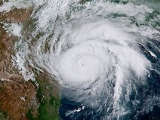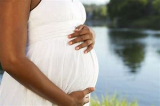 The Hurricane Harvey Flood Study started in 2017 following devastating flooding in Harris County (including Houston), Texas. Dr. Suzanne King (Douglas Hospital Research Centre/McGill University) contacted Dr. Johanne Bick (University of Houston) and Dr. David Olson (University of Alberta) to create a study that would build on existing SPIRAL disaster research. Due to SPIRAL team members’ previous experience with flood disasters, on-site expertise, flood-related experiences and knowledge of Dr Bick and her students, we were able to quickly create our objective hardship flood questionnaire. With the help of programmers at the University of Alberta, all participant recruitment was conducted on-line using the REDCap survey platform. Moreover, we were able to administer a 4-day on-line expressive writing (20 minutes per day) intervention in a random manner following participant recruitment. A third of the participants were asked to write about their flood experience and other traumatic events in their lives. A third of the participants were asked to write about neutral topics. The final third were a non-writing control group.
The Hurricane Harvey Flood Study started in 2017 following devastating flooding in Harris County (including Houston), Texas. Dr. Suzanne King (Douglas Hospital Research Centre/McGill University) contacted Dr. Johanne Bick (University of Houston) and Dr. David Olson (University of Alberta) to create a study that would build on existing SPIRAL disaster research. Due to SPIRAL team members’ previous experience with flood disasters, on-site expertise, flood-related experiences and knowledge of Dr Bick and her students, we were able to quickly create our objective hardship flood questionnaire. With the help of programmers at the University of Alberta, all participant recruitment was conducted on-line using the REDCap survey platform. Moreover, we were able to administer a 4-day on-line expressive writing (20 minutes per day) intervention in a random manner following participant recruitment. A third of the participants were asked to write about their flood experience and other traumatic events in their lives. A third of the participants were asked to write about neutral topics. The final third were a non-writing control group.
The main goals of the Hurricane Harvey Flood study are to examine how disaster-related stress experienced by pregnant women during and after the traumatic flooding that occurred in Harris County, Texas, affects maternal psychological functioning, and fetal and child development. Unlike Project Ice Storm and our two other flood studies, the Hurricane Harvey Flood Study will be able to determine whether the on-line expressive writing intervention (conducted at various stages of pregnancy or postpartum) can protect the women and their children from the potentially harmful  effects of disaster-related stress. Moreover, we made a concerted effort to recruit a large number of women who became pregnant following Hurricane Harvey to be able to study the effects of preconception stress on fetal and child development. In total 372 women were in their 3rd trimester of pregnancy during the flooding, 214 in their 2nd trimester of pregnancy, 251 in their 1st trimester of pregnancy, and 122 were exposed prior to conceiving. To date, the Hurricane Harvey Flood Study is the largest study to address how maternal exposure to a natural disaster may affect both her and her child’s long-term functioning.
effects of disaster-related stress. Moreover, we made a concerted effort to recruit a large number of women who became pregnant following Hurricane Harvey to be able to study the effects of preconception stress on fetal and child development. In total 372 women were in their 3rd trimester of pregnancy during the flooding, 214 in their 2nd trimester of pregnancy, 251 in their 1st trimester of pregnancy, and 122 were exposed prior to conceiving. To date, the Hurricane Harvey Flood Study is the largest study to address how maternal exposure to a natural disaster may affect both her and her child’s long-term functioning.